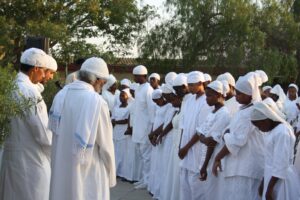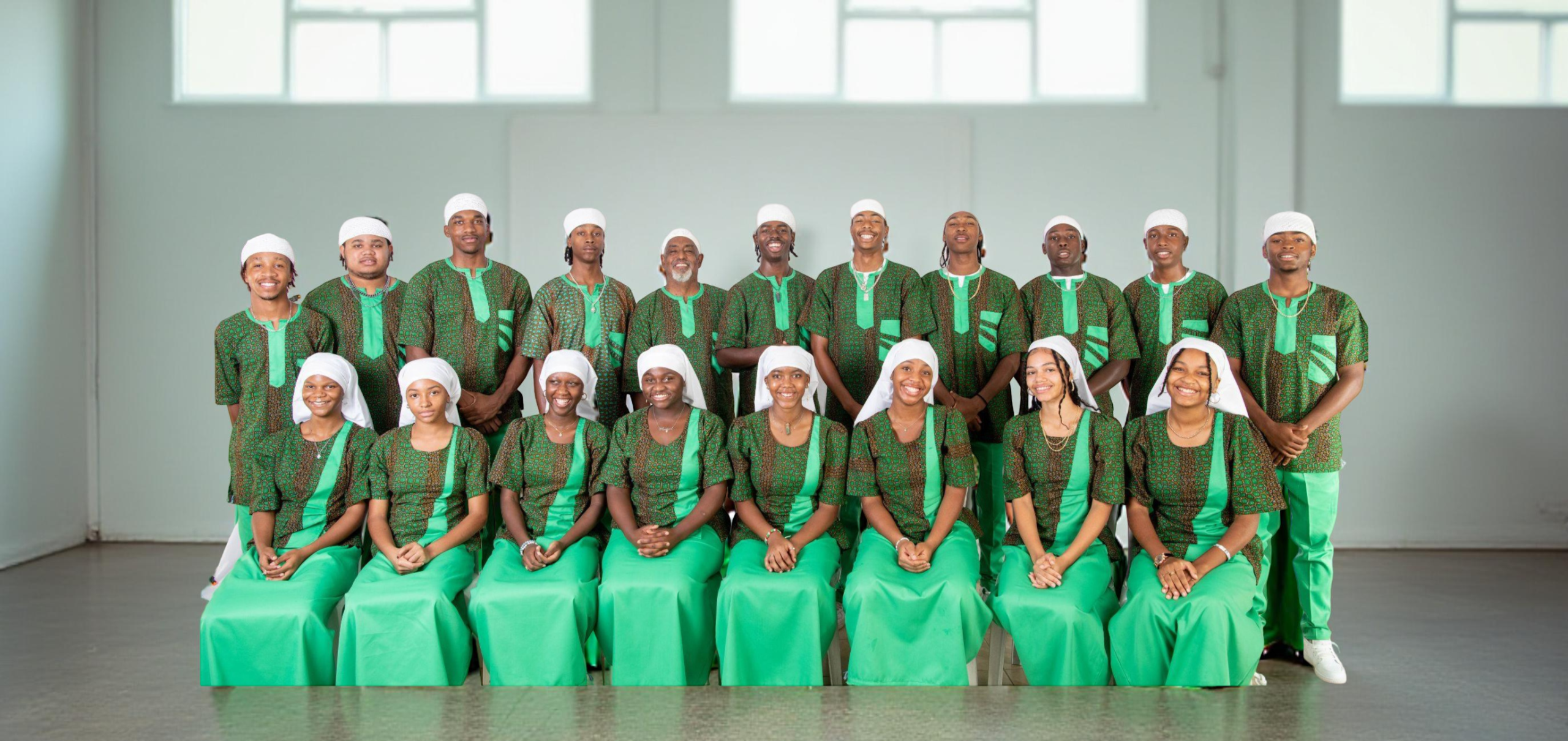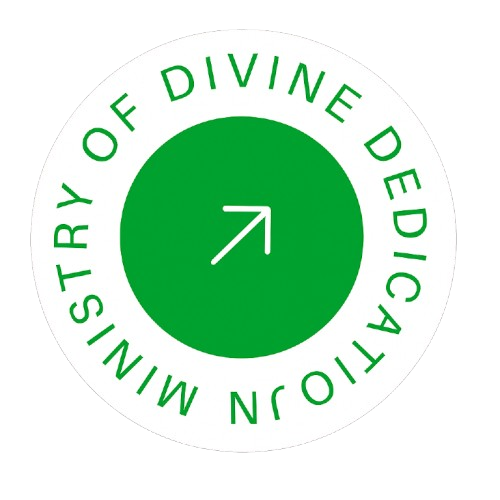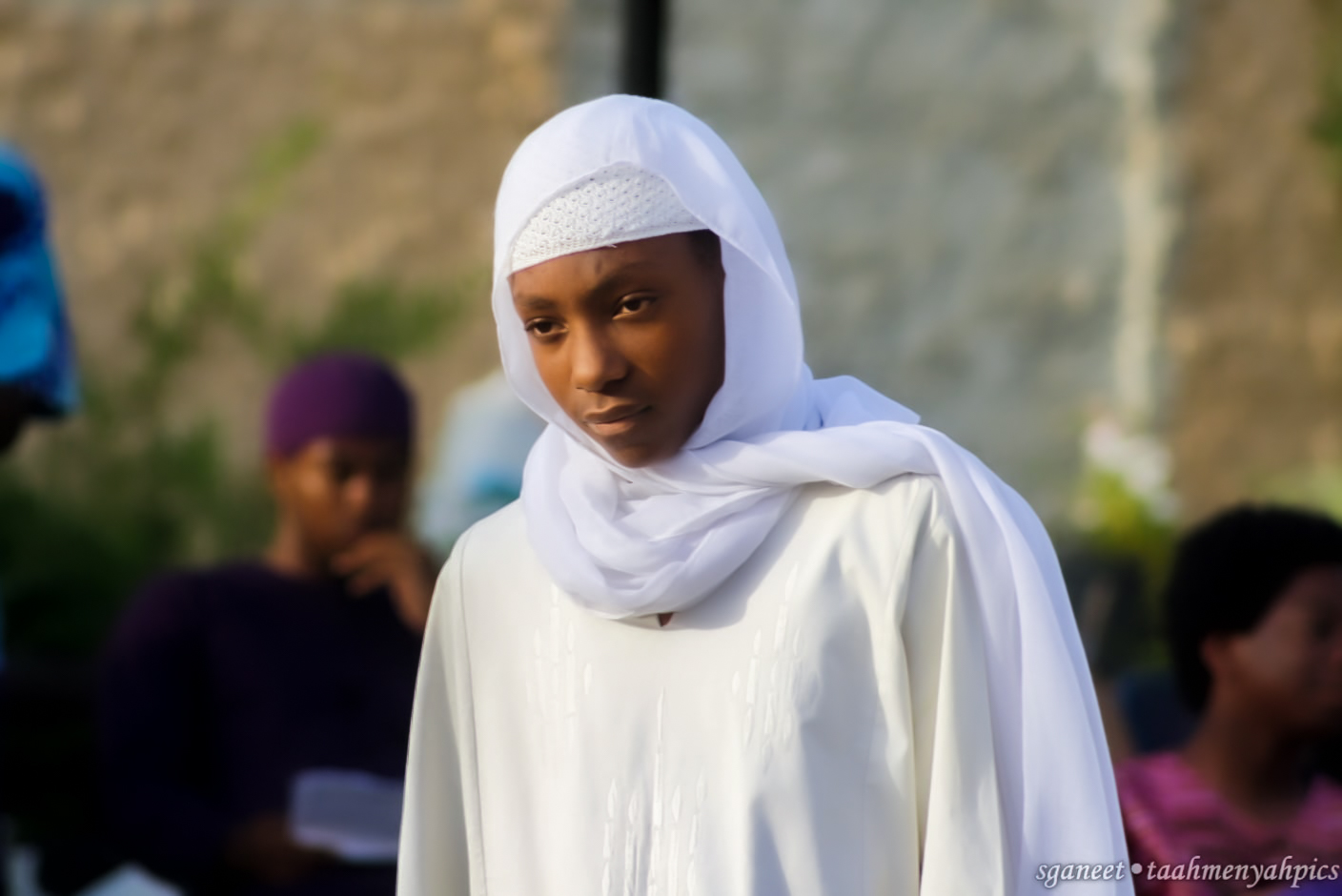As commanded in the Holy Hebrew Canon, our community observes all Holy Days on their time during the year. Also listed below are the additional Holy Days kept by the community, Hebrew Israelites.
1. Holy Sabbath, the 7th day in the week all year long
2. New Year, Aviv, Spring
3. Memorial Passover, Aviv, Spring
4. Feast of Unleavened Bread Aviv, Spring
5. Feast of Weeks, Summer
6. Shabbatone Zecharon Thruah , Autumn
7. Day of Atonement, Autumn
8. Feast of Tabernacles, Autumn
Here are the customs, laws, and faith that stand behind Holy Day in the 7th month of the year, as they are learned, perceived, and kept in the community. We celebrate this first Holy Day in Autumn, the 7th month of the year, called Shabbtone Zecharon Thruah. [Leviticus Chapter 23 verse 24]
“ Speak unto the children of Israel, saying: In the seventh month, in the first day of the month, shall be a solemn rest unto you, a memorial proclaimed with the Shabbaton Zecharon Thruah a holy convocation.”
The Holy Day Shabbatone Zecharon [ memorial ] Thruah is when each community member gets together and takes time to reflect upon the relationship with Yah [God], others, and the Divine creation. The community prepares for the Day of Judgement, Yom Kippur, ten days after the Thruah Remembrance Sabbath. Shabbaton Zecharon Thruah is, first and foremost, a Sabbath day. No work done. The Holy Day begins with the Holy Convocation sermon on the eve of the Holy Day.
During this Holy Day, lighting a fire is prohibited, and cooking is forbidden; the cook will prepare all foods before sunset on the eve of the Holy Day. Likewise, the consumption of wine is prohibited, the use of electrical devices is not allowed, and there are no games. Remember that you can use the lights in public places such as the dining and guest rooms. However, one must turn the lights on before the Holy Day, and the lights must remain lit until the Holy Day is over. If the lights do get turned off during the Holy Day, they will remain off until the Holy Day is over.
The Yah of Israel commanded his people to raise an offering and to offer sacrifices at his times. The community also observes this law, except that the sacrificed animal will not be slaughtered. The sacrifice offered by the community to the Yah of Israel is a spiritual sacrifice. The expressions of repentance and promises we obey his laws now are the sacrifice, the offering, to the Yah of Israel.
Likewise, Israelites must ask forgiveness from the Creator for his sins and crimes, in the past year, in such a way that Yah, who sits on high, will accept it. The above expresses the meaning of the Sabbath and the remembrance associated with this time, meaning that we must rest from all work and dedicate ourselves to thinking to remember our ways and find ways to improve ourselves for the future.
The meaning of the Thruah:
In addition to Shabbat and the commemoration associated with this time, the priests carry a trumpet: a warning of the coming Yom [Day] of Atonement – Yom Kippur. To understand the historical significance of the meaning of the Thruah:
As the community understands, one must turn to the book of Numbers 10:1-10.
The Thruah [trumpets] used in the Bible in several meanings:
– Call the people and gather.
– To inform the people about the beginning or end of a war.
– A warning sign of the coming of Yom Kippur – Judgment Day.
– Upcoming Holy Days:
The same ideas for using the trumpet/ shofar can still be found today in modern societies. An important thing to remember is that the people knew then, as they should know today, that when the cheers are heard, something begins to happen, something begins to happen.
The Thruah does not come as an independent action for its own sake but as a sign, signal of the beginning of another occurrence. Another evidence of the use of the trumpet can be found in the book of Joshua 6:1-20: the story of the fall of the walls. In this story, the voices of the people were also used as cheers that caused the walls of the city of Jericho to fall. From this, we learn that a person’s voice, his words, and the words he expresses can also be used as a shout, as a call that will be followed by the desired response that will bring about specific events. The person’s voice and words are the strongest cheer in their spiritual meaning. The things that should be said at this particular time are the exultation, and they should be the living words of Yah.
The rejoicing, then, are the words of Yah, which are spoken and delivered, by the messenger of Yah and His Messiah. Of course, we do not deny the tangible trumpet, the instrument familiar to all of us, but more than that, we emphasize the spiritual “trumpet.” For example: [Book of Isaiah chapter 18 verse 3 and chapter 2 verse 3 ] from the same book. For it is said: From Zion shall go forth the Torah, [law] and the Word of Yah, from Jerusalem.” We cannot deny our significance as the chosen people, to sound the rejoicing from Jerusalem so that all peoples and nationalities will hear.

The cheering made people stop for a moment, think about the things that were said, and, if necessary, lead their lives accordingly, from whom the cheering was heard and beyond. [Isaiah 58: 1], in which Isaiah commands to raise his voice as a trumpet. We believe in the power of the spoken Word. The Word of Yah is powerful because the power of the saying alone created the whole world. On the Word alone, the world was created in Genesis; In the beginning, was the Word (the Word), and the Word is Yah, and the Word is with Yah,




whoiscall
September 24, 2023Cheers
Emmaline Martinez
February 10, 2024I just couldn’t leave your website prior to suggesting that I
actually loved the standard info an individual provide
to your visitors? Is gonna be back regularly to check up on new posts
rightofyah
February 14, 2024Thank you so very much! Really Appreciate this comment
Happiness of Yah
April 25, 2024Thank you so very much for visiting our website you have given much inspiration
Расстановки Хеллингер
September 6, 2024Метод психологических расстановок: что это такое. https://rasstanovkiural.ru
rightofyah
November 12, 2024Thank you so very much!
video downloader pinterest video downloader
November 2, 2024Wonderful web site Lots of useful info here Im sending it to a few friends ans additionally sharing in delicious And obviously thanks to your effort
Catherine2835
April 22, 2025Very good https://is.gd/tpjNyL
rightofyah
April 23, 2025Thank you so very very much!
Cody3124
April 22, 2025Awesome https://is.gd/tpjNyL
rightofyah
April 23, 2025Thank you so very much!
Amber3974
April 23, 2025Good https://is.gd/tpjNyL
rightofyah
April 23, 2025Thank you so very much!
Nathaniel3269
April 23, 2025Awesome https://is.gd/tpjNyL
rightofyah
April 23, 2025Thank you so very much!
Alexandria1187
April 23, 2025Good https://shorturl.at/2breu
rightofyah
April 23, 2025Thank you so very much.
Barbara1816
April 23, 2025Very good https://shorturl.at/2breu
rightofyah
April 23, 2025Thank you so very much!